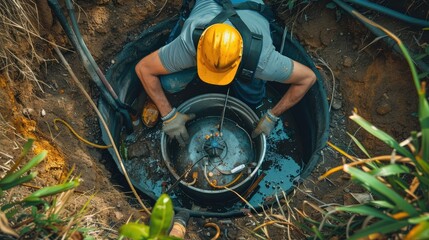Best Window Replacement Austin is a big project, but it can improve your home’s efficiency and aesthetics. When you’re choosing windows, make sure they have an ENERGY STAR label and NFRC certification.

Also, look for a full-service window company that can handle lead paint removal in older homes. They should also offer a warranty and payment terms you can agree on.
Energy efficiency is a major consideration for many homeowners when choosing replacement windows. After all, energy bills are often a top household expense and it’s important to find ways to reduce those costs. However, it’s important to note that window replacement is only one of many possible upgrades that can improve a home’s energy efficiency. If you’re looking for an excellent return on investment, then it’s important to consider all of your options for upgrading your home.
The insulating qualities of a window are heavily dependent on its frame and sash materials. This is why it’s important to work with a professional that can offer a variety of styles and frame materials that will best match your home. A professional will also know how to properly insulate and seal the new window to prevent air leakage.
When selecting replacement windows, be sure to look for the ENERGY STAR label and review the ratings on the National Fenestration Rating Council (NFRC) sticker. This will help you compare products and make an informed purchase. You should also explore your state’s incentives for renewable energy and efficiency to find out if there are any available that can further lower your out-of-pocket costs.
It’s important to remember that it will take a significant amount of time for your replacement windows to pay for themselves in energy savings. This is especially true if you’re replacing single pane windows with warped wood frames.
By utilizing energy efficient windows, you will be able to keep your house warmer in the winter and cooler in the summer. This will cut down on your monthly energy bill significantly and help to reduce your home’s carbon footprint.
It’s important to note that even if you install the most energy efficient replacement windows, they may not be worth the investment if your home isn’t already well insulated. This is because the windows will be unable to fully compensate for the air loss that’s occurring in your existing frames and attics. By improving your insulation, you’ll be able to see a much greater reduction in your energy bill.
Aesthetics
Your home’s aesthetic reveals your personality and the way you live, and every detail plays an important role. The paint colors you choose, the furniture, wall art, and even windows can all contribute to your home’s overall style. Upgrading your windows with sleek and modern designs elevates your property’s aesthetic and can make it more aesthetically appealing to potential buyers if you ever decide to sell your home.
There are a number of different window styles to consider when upgrading for aesthetics, including casement, sliders, bay, bow, awning, and picture (fixed pane) options. Many of these styles can also be customized with grilles or muntins to further enhance the appearance. A professional window installation service can help you select the right style and frame material for your home.
The color and finish of the window frames is another crucial aspect to consider. A quality installer will offer a variety of finishes, from wood to aluminum and vinyl. They will also be able to recommend additional decorative features that can give your home an extra flair, like cornices and valances.
Aside from the style and material of the frame, the glass is an essential component that can significantly influence your home’s aesthetic. While clear glass is the most popular option, you can also opt for decorative glass that adds a unique visual element to the window. Frosted, stained, and etched glass can all be used to create a striking appearance.
Finally, the trim and accessories that you choose for your new windows can also make a significant difference. If you want your windows to blend in with the rest of your home’s trim, then a coordinating color is essential. Window treatment options like curtains, shades, blinds, shutters, and drapes can be used to further enhance the aesthetic of your home’s windows.
In addition to the wide range of aesthetic options, modern replacement windows feature slimmer frames and expansive glass areas that can brighten your living space and open up the view of the outdoors. This combination of functionality and aesthetics can greatly elevate your property’s curb appeal.
Curb Appeal
Curb appeal is a property’s first impression and it can play a vital role in attracting or repelling potential buyers. Home shoppers will gravitate toward a well-manicured landscape and an inviting exterior that makes them want to see more of the house. A home that looks neglected might make them wonder what problems lurk within. Often, curb appeal red flags are warning signs of underlying issues that could require costly repairs.
A fresh coat of paint on the windows, doors and trim is an inexpensive way to improve a home’s overall look and boost its curb appeal. When choosing a new color, consider the home’s style and color scheme to ensure it coordinates. Some homeowners opt to paint their window sills and trim a different color to add contrast to the home’s exterior.
In addition to painting, other low-cost ways to enhance a home’s curb appeal include adding shrubbery and flower beds to the front yard. Incorporating trees into a landscaping plan is also a great way to create visual interest. Plantings around entryways, along driveways and walkways, and immediately in front of the home are good locations. Providing proper lighting is another way to create a welcoming exterior that enhances a home’s curb appeal.
If you’re considering window replacement but don’t want to remove the exterior cladding or trim, pocket installation may be the solution for you. Also referred to as “frame-in-frame” replacement, pocket windows are installed in the existing window frame without removing the siding or sash.
Many replacement windows are available with decorative grid systems and finishes that complement a home’s architectural design. A window and door dealer can help you evaluate your options for window replacement and curb appeal.
When you’re ready to find a window and door dealer, locate one by zip code using our online dealer locator. You can also schedule a free consultation with a Pella expert to get started on your window replacement project. A window and door expert can recommend the right products for your needs, help you choose the best color and materials to match your home’s style, and assist with the installation process.
Water Damage
Water damage from leaky windows can lead to expensive repairs and a host of other problems. Leaks are often caused by poor installation, gaps in the flashing (the material that directs rainwater away from the window), or old caulk that has dried out over time. Even the highest quality windows can leak if they are not installed properly. These issues can also reduce energy efficiency and cause your utility bills to rise.
If you suspect a window leak, it’s important to act quickly before the problem worsens. Leaving moisture to penetrate and damage drywall, insulation, flooring, and furniture can result in costly repairs and replacements. Some signs that a window is leaking include water stains, mold growth, and peeling paint around the frame.
Before starting a repair project, make sure that you turn off any power to areas affected by water and put on safety gear such as gloves and goggles. You’ll also need to gather tools and supplies including a wet/dry vacuum, a dehumidifier (rent a commercial-grade unit for maximum effectiveness), fans, a caulking gun, waterproof tape, cleaning solutions designed to kill mold, and more.
Once you’ve turned off any electricity to the area, you can start addressing the issue by drying out the space with fans and dehumidifiers. It’s also important to check for other potential sources of the leak and address those as well. This may involve clearing out clogged gutters, repairing any damaged roof shingles, or adjusting the slope of your yard to prevent water from pooling near your windows.
You should also test the window sill and frame for moisture. You can do this by pressing your finger against the wood and seeing if it feels soft or hollow. If it does, this is a sign of water damage and you should call a professional to examine the damage.








